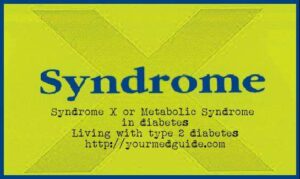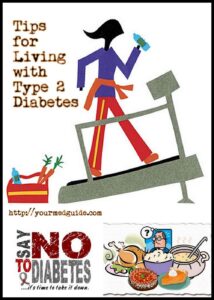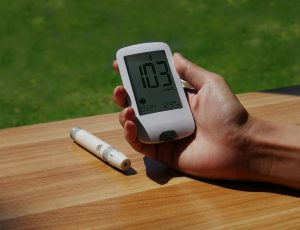An awareness of ketones in diabetes–in both type 1 and type 2 –is crucial as it can lead to a medical emergency.
Ketones occur in the blood when the body starts to burn its own fat. High levels of ketones in the blood are a major complication of diabetes and if not treated on time, lead to a condition called ketoacidosis.
In people with diabetes, ketones build up when the insulin is inadequate to fuel the body’s cells. When the body does not have enough insulin, it cannot get glucose from the blood into the body’s cells to use as energy. Instead, it starts to burn fat.
Insufficient insulin makes the fat cells release fat continuously into the blood while the liver keeps making more and more ketones and ketoacids. The rising level of ketoacids in the blood lowers the blood pH, making it so low that it becomes an emergency medical situation that needs urgent attention.
In people who are not diabetic, the body adapts to starvation by producing ketones. Since their blood sugar levels are more or less stable, the production of ketones is controlled by a good balance of insulin, glucagon, and other hormones. But in those who do have diabetes, dangerous and life-threatening levels of ketones can develop.
While ketoacidosis is more common in type 1 diabetes, it can also happen to someone with type 2 diabetes when there is increased insulin resistance. This resistance can be caused by infection or treatment with steroids or a reduction in insulin release from the pancreas.
Testing for ketones in diabetes
Usually, those with type 2 diabetes are considered less likely to suffer from high ketone levels as they usually produce enough insulin. But if you suffer from advanced type 2 diabetes, insulin production may be insufficient, raising the risk for high levels of ketones.
It is important to learn what the symptoms are and know when you need to take a test. If there are ketones in the urine, it is an indication that your diabetes management must be adjusted. Ketone testing is generally advised for pregnant women who are diabetic and those with gestational diabetes.
So, what should you do if you find ketones in your tests?
If the level of ketones in the test show:
- under 0.6 mmol/L – no need to worry and no action required.
- above 0.6 mmol/L – test again within an hour to see if the ketone level is rising.
- above 1.5 mmol/L – consult your doctor immediately.
For very small amounts of ketones in the test, do the following:
- Drink water every hour, and continue testing every three hours.
- If your ketone levels do not fall after two tests talk to your doctor
- If the test shows moderate or high ketone numbers talk to your doctor at once, and drink water.
Is it possible to recognize diabetic ketoacidosis?
The symptoms of diabetic ketoacidosis or DKA may be as follows, but when there’s vomiting, it is a medical emergency:
- Breathlessness
- Thirst or a very dry mouth
- Frequent urination
- Very high blood glucose
- Very low insulin levels
- High levels of ketones in the urine
- Constant tiredness
- Dry or flushed skin
- Nausea, vomiting, or abdominal pain
- Confusion or difficulty paying attention
- Fruity-smelling breath
- Blurred vision
Usually, DKA is caused by illness, when you are too sick to eat or drink as usual, making the blood sugar levels difficult to manage.
Also, if you miss insulin shots or get the wrong insulin dose, it puts you at risk for DKA.
DKA can also be caused by a heart attack or stroke, a physical injury, alcohol or drug use, and certain medicines like steroids and diuretics.
If you suspect diabetic ketoacidosis, contact your doctor right away to avoid making the situation worse.
How to prevent the buildup of ketones in diabetes
You can.
Here are five tips to prevent high ketone levels and diabetic ketoacidosis
Follow your diabetes diet
Eat healthily, eat on time. Don’t skip meals. If you do, especially the carbohydrate-based meals, your body takes it as a sign to start producing ketones. A well-balanced diet that has the right amount of starchy or complex carbs can help prevent the production of ketones.
Consume complex carbohydrates
We know that starch and sugars are carbohydrates. The preferred carb, of course, is complex or starchy carbs as your source of energy. Examples are Whole grain cereals, Vegetables, Beans, Nuts, Wholemeal bread, Brown rice, Pasta, etc.
Stick to your diabetes treatment plan
This goes without saying — but it is important to remember to stick to the treatment plan you are on. This may be taking your oral medication or insulin on time, as prescribed. When blood glucose is not properly controlled, it encourages the production of ketones. Ensure that you monitor your blood sugar and if it fluctuates outside your target levels, talk to your doctor.
While ensuring that you are getting enough carbs for your energy, exercise regularly. If you don’t have enough carbs and tend to exercise sporadically, it will result in the breaking down of fat and the production of ketones.
If you are sick, take special care of yourself
Take extra care of yourself when you fall sick. To make sure you get enough carbs, include milk, fruit juice and glucose drinks in your diet. Illness can interfere with your diabetes treatment, so it is important to monitor that blood glucose and let your doctor know about any changes.
In case you have high blood sugar and start vomiting and pass a lot of urine, feel cold and breathless, see your doctor right away as this can be signs of DKA.
Keep track of your ketone levels
Ketone monitoring is particularly important for those with type 1 diabetes, women with type 1 or type 2 diabetes when they become pregnant, women with gestational diabetes, and type 2 diabetics who are on medication or taking insulin.
Stay healthy!












Thank you for another insightful health post, Vidya.